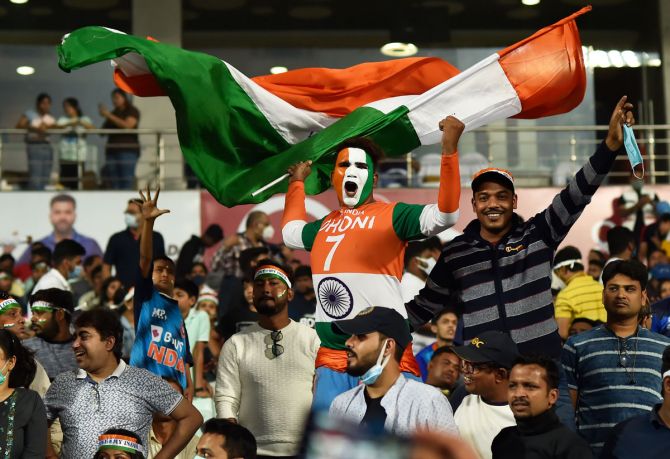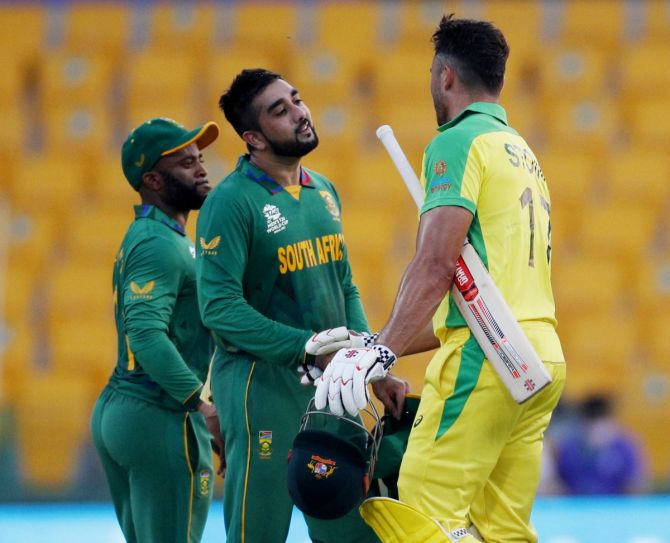Just like it happens in football, where everybody from around the world wants to play in European leagues, every cricketer would dream to play in the Big Bash, IPL and The Hundred, explains Abhishek Singh.
South Africa recently decided to pull out of a one-day international series in Australia next January.
The series was part of the ODI Super League (played for direct World Cup qualification) and cost the Proteas a crucial 30 points, which will in all likelihood leave them playing a qualification tournament for the 2023 ODI World Cup to be hosted in India.
Cricket South Africa, the governing body of the sport in the country, stated that they are focussing on developing their own T20 league that begins at the same time as the proposed three-match ODI series.
This means that cricket boards are now valuing the T20 leagues more than even a chance at direct World Cup qualification!
The assumption is partially true. Given the money-making potential of the leagues, the cricketing nations, apart from the Big Three (India-Australia-England), cannot afford to lose money that helps them sustain the game at the grassroots level.
So, if a league projected to give CSA a profit of around $58 million from its fifth season onward is clashing with an ODI series, which might as well have not guaranteed its team's progress to the World Cup, why wouldn't it be preferred by the board?
While this is the first instance of such a major pull-out, it is an indication that cricket is now getting driven by demand, more than passion and tradition.
Bilateral series between two nations such as the Ashes enhanced the prestige of the game and underpinned its financial support system, garnering big crowds and sponsorship in the pre-T20 era.
The Indian Premier League changed things a lot.
With its latest media rights for the next four years (2023-27), sold for a whopping 43,000 crore, the game has shifted totally towards leagues, and every board wants to have its own domestic T20 league.

The Future Tours Programme (FTP), which the International Cricket Council, the governing body of the sport across the globe, prepares, is under process.
The FTP publishes a list of bilateral and multilateral tournaments that is honoured by all member bodies.
The Big Three want dedicated slots for their respective premier domestic T20 tournaments, the IPL (India), The Hundred (England) and the Big Bash (Australia).
The IPL generally runs from mid-March to mid-May. In June and July, The Hundred will be played.
The Caribbean Premier League (the West Indies' domestic T20 tournament) is played through August.
Come December and it will be time for the Big Bash, New Zealand's Super Smash and South Africa's proposed league.
They will last till January and in February, Pakistan Super League is played.
The cycle will repeat itself. Thus, the major seven cricket boards will still get the window to play their leagues and also play bilateral series among themselves.
If the ICC does grant these boards their wishes, then who will suffer?
Developing cricketing nations such as Zimbabwe, Bangladesh, Ireland and Afghanistan will lose out on both the money from the bilateral series with big nations and the one coming from their own T20 leagues because big ticket players won't be available to play for them due to tight scheduling of big leagues and bilateral tournaments.
Greg Barclay, the ICC chief, had pointed this out earlier this year.
Talking about the demand for increased space for leagues in FTP, he said: 'I think there'll be some unfortunate consequences from a playing experience point of view and in a revenue generation perspective for some of these countries (financially weaker ones) who just won't get the amount of cricket that they will hope to have.'

When leagues become mainstream, India playing Zimbabwe in a bilateral series might become a thing of the past.
Neither the audiences in India nor sponsors will be interested in such a series.
This would not affect India, but for Zimbabwe and its players, it would be a disaster.
Their players would not get the much-desired opportunity to showcase their talent in front of a big nation and the board won't get the big advertisement and sponsorship money.
T20 cricket would most likely go the football way. Big budget leagues will continue year-long.
The three to four months left in between would be utilised for the World Test Championship as that will be the only way to sustain Test cricket.
ICC tournaments (World Cups and Champions Trophies) will become the major form of international white-ball cricket.
Bilateral ODIs/T20Is will be played in minimal quantity and only to prepare for ICC tournaments.
Smaller nations, which always dreamt of playing Test cricket one day, would have to give that up and focus fully on developing their own T20 leagues.
The main focus of players in these countries would be to play in the major T20 leagues.
Just like it happens in football, where everybody from around the world wants to play in European leagues, every cricketer would dream to play in the Big Bash, IPL and The Hundred.
Feature Presentation: Rajesh Alva/Rediff.com










